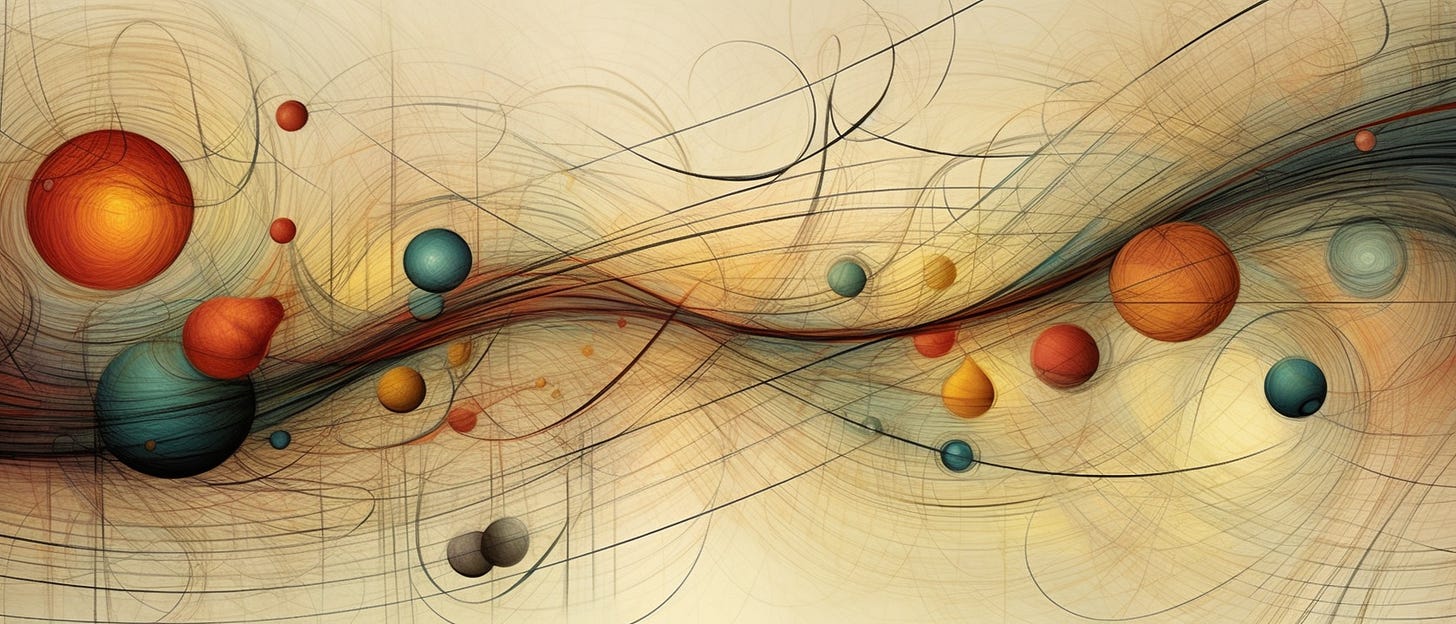[A sweet moment of dialogue with a wise friend… Worth sharing I think.]
K: I had such a profound nature mysticism experience in my late teens and early 20s, and the experience has gone away, but in the last month or so or three, the hunger for it has returned.
S: For me it's never stopped, it's just always been, and again now I understand, no religion and no spiritual teaching has been as powerful and steady, always present as that. Every speck of dust when the sun comes, every, even dirt on the floor can have a pattern, can have a story to tell, a teaching in it.
K: A liveliness.
Yes.
S: Yes, in that sense, spirit full of energy and joy, it's just that, it's delight.
I always say I'm thinking of the connection between delight and enlightenment and lightness of being, all those words are related.
K: And for me I had to go deep into the transcendent non-dual. In which the sentience of otherness disappears in the profound mysterious sentience of being that has no other.
And I'm working very lately, I just published a crazy conversation I had yesterday with ChatGPT about this.
S: Oh boy.
K: But there's this dimensionality to our experience that has a dynamic ontological superfluid.
You know, in the last few years, I really appreciated Sean Esbjorn-Hargens term “ontological pluralism.”
And just this morning I stumbled onto the frame that makes even more sense to me is dynamic ontological superfluid.
S: Superfluence, it's a novel word to me.
K: A superfluid is a physics term and a true superfluid flows with zero friction.
All fluids have a certain viscosity.
S: Yeah, yeah.
When they move, yeah.
K: And a superfluid has no viscosity.
S: And where do they exist? Where do we find them?
K: I think they may be a theoretical phenomenon.
S: So something, well, I was just thinking, you know, zero temperature minus whatever it is. In that area, it might be possible, yeah.
K: And I don't know the research on superfluids well, but the dynamic ontological superfluid is a way of naming the departure from the religion or the belief in a static existential reality.
S: Mm-hmm.
K: And so that, to me, feels most honoring of my experience.
In the deepest sense of things, ontology is a mythology.
And, but that...
S: When you say that, you mean the storytelling we do?
K: There is no story.
There is no perception.
There is no existence that holds still as one fundamental truth or reality.
S: Well, yeah, that would be it, I mean, yes.
K: All of it is dynamic and superfluid.
And what we understand as the laws of physics or the laws of reality or what is and what is not real, these are child's stories.
But I want to contextualize that to say in the other hand of that being is the utility of perception.
Perception itself dissolves.
S: Yeah, it's helpful to navigate life, let's put it that way.
K: It's a fundamental quality of development and evolution is utility and persistent utility that makes us think from our little lifetimes that gravity exists.
But if we actually change our epistemology and allow gravity and other, quote, realities to be evolutionary utilities subject to the underlying superfluid condition of the non-ontology, then we change our science.
Then we change our meaning making.
Then we change our physics.
Then we change our engineering.
Then we change our self-identities and our social structure.
And my sense is that by allowing ourselves to hold ontology as an illusion and discovery as a utility, but not as a fundamental search for the ultimate truth.
Because if you set up a false goal and then you interpret everything you do in relationship to that false reality.
S: And I mean, you make these arguments much more erudite than I would nowadays.
But that's, again, I was saying I like nature as a teacher because whatever I draw from it, whatever, it's my interpretation.
I know it so much.
It's not true. It's just my interpretation.
And it's not a teacher or a school of thought or, you know, all of that.
It's just me in relationship to what I experience or try to get into even.
I'm trying to be a tree.
I'm trying to be the rhizome.
I'm trying to think of myself as a piece like that.
Then think maybe that is a part of that.
I don't know.
I wouldn't even know how to have words for it.
But that's the experience.
K: Well, what I would suggest is in the dynamic, the existential dynamic of evolutionary developmental flourishing, that it is these perceptive utilities that are not, they're not just socially constructed realities, right? These are deep cosmic epistemologies that as I in this, in my divine manifestation become human, then too, I give rise to a relational dynamic with all other arising phenomenon that causes that human expression to feel and reciprocate and develop ever greater flows of love and delight and enlightenment and compassion and care.
And it is that when we look to see the animate universe and discover it loving us back, not just indifferently present to our ignorant existence, but actually joyfully running towards us, giggling, that all of a sudden we become ourselves a more effective expression of the evolutionary impulse to creative novelty and enduring expression.
S: Beautifully said.
Did you write this all down this morning?
K: No, not yet.
S: You should.1
This was a recorded dialogue from a video conversation, the audio file of which I then ran through the OpenAI Whisper platform which did a remarkable job accurately transcribing.



